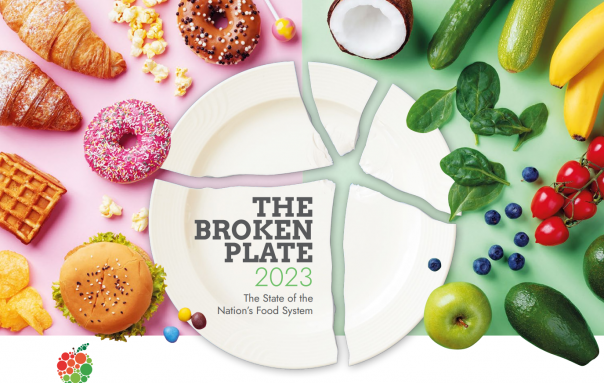
The report, which is produced each year, also found that healthier foods are over twice as expensive per calorie as less healthy foods.
Anna Taylor, executive director of The Food Foundation, said: “It is perfectly possible for us to increase the flow of affordable, nutritious food through our food system and into our shops and takeaways, we just need to get the incentives right within the system.
“The figures in this report tell us just how badly this action is needed. Too many of us know family and friends that are struggling with health problems resulting from a system that directs us to foods that damage our wellbeing. Politicians need to look carefully at what the data is telling us about the state of Britain. Serious leadership in tackling this is long overdue.”
This year’s report features a number of new metrics, including that 56% of calories consumed by older children and adults are from ultra-processed foods.
It also report shows that the most deprived fifth of the population would need to spend 50% of their disposable income on food to meet the cost of the Government’s Eatwell Guide. That compares with the 43% figure for last year and the 11% that the least deprived fifth have to spend.
Also, healthier foods are more than twice as expensive per calorie as less healthy foods. When broken down by Eatwell Guide category, fruit and vegetables remain the most expensive category by a significant margin, costing on average £11.79 per 1,000kcal compared with food and drink high in fat and/or sugar costing just £5.82 per 1,000kcal.
The report goes on to say that the health consequences of our diets (and resulting strain on the NHS) are ‘striking’, with nearly 9,600 diabetes-related amputations carried out on average per year - an increase of 19% in six years.
And by their first year of school, children in the most deprived fifth of the population are more than twice as likely to be living with obesity as those in the least deprived fifth.
The data also shows that life expectancy in the most deprived tenth of the population is 19 years lower for women and 18 years lower for men than in the least deprived tenth.
The Government has just announced delays to restrictions on HFSS multi-buy offers, which are a form of junk food marketing. The Broken Plate report reveals that a third (33%) of food and soft drink advertising spend goes towards confectionery, snacks, desserts and soft drinks compared to just 1% for fruit and vegetables.
Henry Dimbleby, author of the National Food Strategy independent review, said: “It is a complete fantasy to suppose that the huge problems of diet-related disease are going to be solved by voluntary measures. The commercial incentives for companies to produce food that makes us sick are overwhelming.
“Just look at the results of the voluntary sugar reformulation programme. Cereals and yogurts are a staple of many families’ diets, and the huge levels of sugar still in so many products is shocking. We need to do better.”